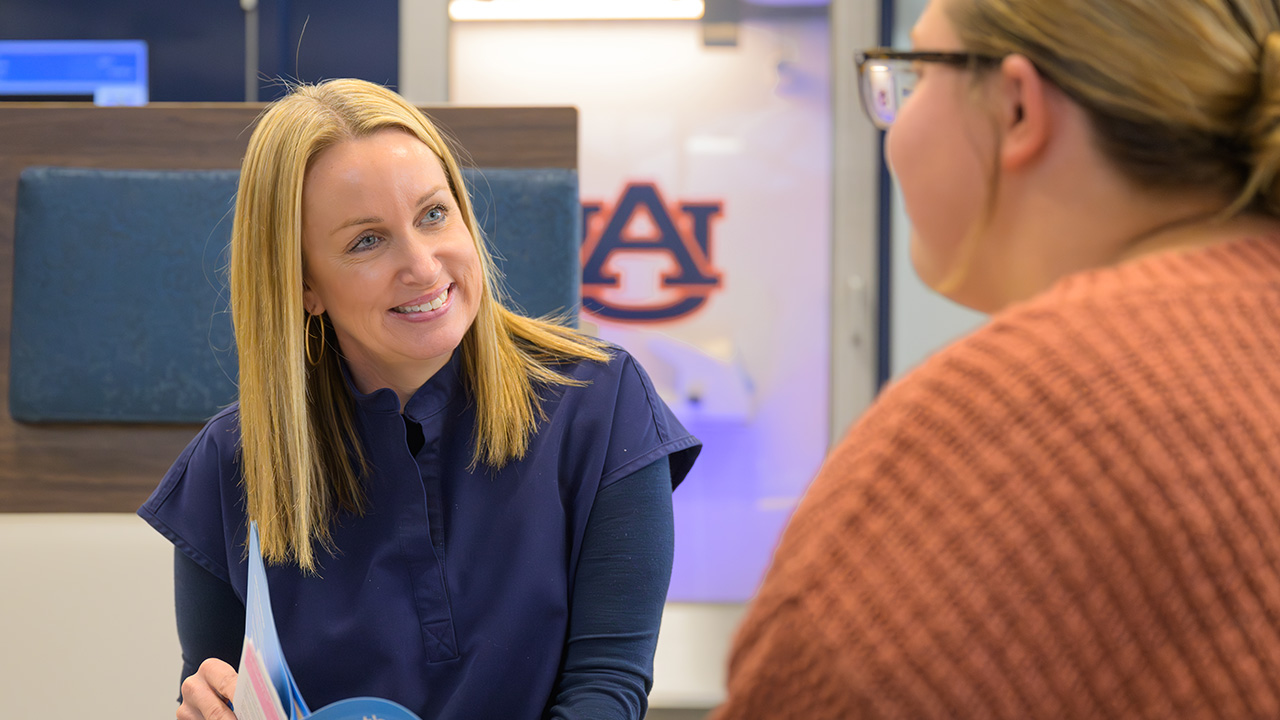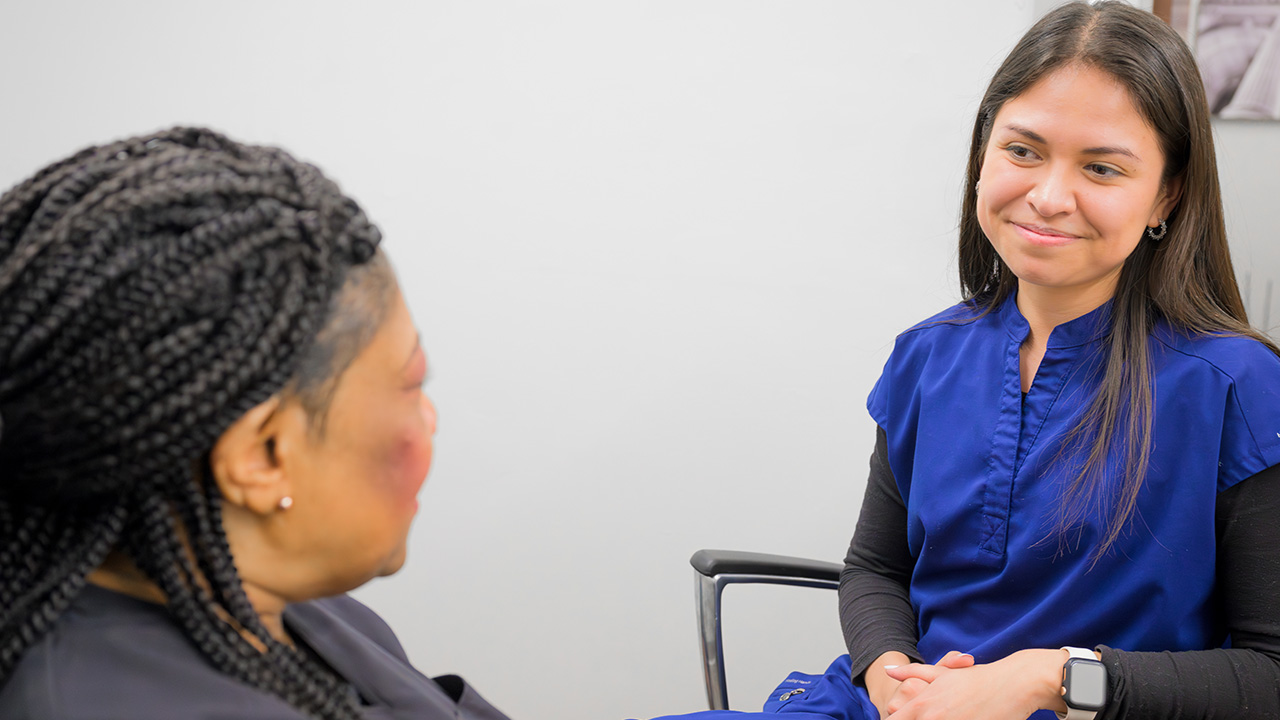content body
Sarah Putzer stands in front of a classroom facing two dozen young women, all seniors at LaFayette High School, who are asking some very hard questions about their bodies, minds and relationships.
While many adults might be uncomfortable or overwhelmed, she is instead excited for the opportunity to answer tough questions. Putzer, who has worked as an emergency room nurse for more than 23 years, is an advocate for women’s health education. As a graduate student in Auburn’s Nurse Practitioner program and a Rural Health Fellow, she is currently spending time with residents of LaFayette, Alabama, discussing women’s health, including menstrual cycles, sexually transmitted infections and hygiene.

Putzer is working with the Chambers County Community Health & Wellness Center to connect with area residents and has visited the middle and high schools to distribute feminine hygiene products and answer questions about women’s health.
The Rural Health Fellows program, an offshoot of Auburn’s Rural Health Initiative, aims to train future health care leaders to create positive change in health equity. After a rigorous application process this past fall, the seven students who were named Fellows are now gaining experience in rural health care by attending monthly meetings, completing Canvas course modules online and designing and implementing health-centered activities in the LaFayette community. Fellows receive feedback on their projects through regular review sessions with the health service team, along with constructive critiques and mentorship from experienced professionals in their respective fields.
Long before she was named a fellow, Putzer developed an interest in women’s health education when she was asked to speak to seventh-grade girls while on a medical mission trip to Kenya.
“Despite feeling nervous and unprepared, I connected with the girls as I realized the challenges they faced due to the lack of access to feminine hygiene products,” she said. “This experience led me to understand the critical link between women’s health, education and empowerment.”
When Putzer returned to Kenya two years later, she decided to focus her efforts on young mothers in the village. Her research into maternal mortality rates highlighted the urgent need for better access to female-specific care around the globe.
“Regardless of location or socioeconomic status, women share everyday experiences and aspirations,” she said. “Bonding over our shared hopes and dreams, I was inspired to further advocate for women’s health and well-being. I have learned how much health disparities, social inequities and a lack of health education affect women, especially young women.”
Putzer is working with the Chambers County Community Health & Wellness Center to connect with area residents and has visited the middle and high schools to distribute feminine hygiene products and answer questions about women’s health. Chambers County has some of the highest rates of human papillomavirus (HPV) and cervical cancer deaths in the state. Putzer hopes to battle these statistics by introducing education to reduce teen pregnancy, increasing awareness of vaccines that prevent HPV-related cancers and promoting regular screenings for cervical cancer.
Since many of the teens she meets are embarrassed to ask questions out loud, she provides a notebook so they can write them down instead. The questions she gets range from basic to extremely specific, and some of the concerns Putzer has never even heard before.
“They have asked some really good questions,” Putzer said. “I had to do some research, so I’m learning things too.”
In addition to questions about physical health, many young women have expressed concern in how to care for their mental health. Putzer knows physical and mental health are connected, so she encourages them to go back to the basics and evaluate diet, exercise and sleep as the foundation for their overall health.
“We have to go back to those things we keep hearing: regular exercise, healthy eating, adequate sleep, relaxation techniques, social support, time management and positive thinking,” she said. “And know you can always seek professional help.”
Back in the high school classroom, Putzer fields questions on the difference between HIV and HPV, why hormonal fluctuations cause moodiness and which yoga poses help relieve cramps. She notices a group of students in a back corner huddled around the notebook, whispering as they write and then rewrite a question they’re scared to ask out loud.
Putzer retrieves the notebook, takes a deep breath and dives right into her response, on a mission to answer all the hard questions that come her way.





